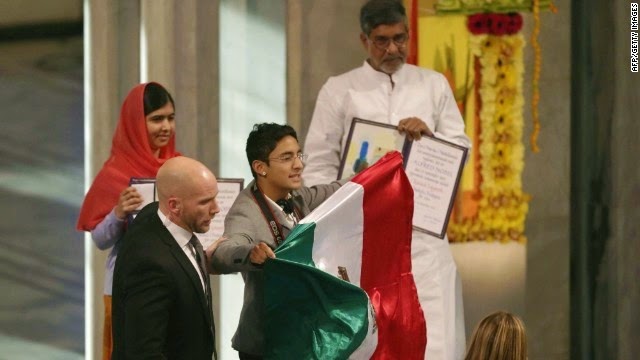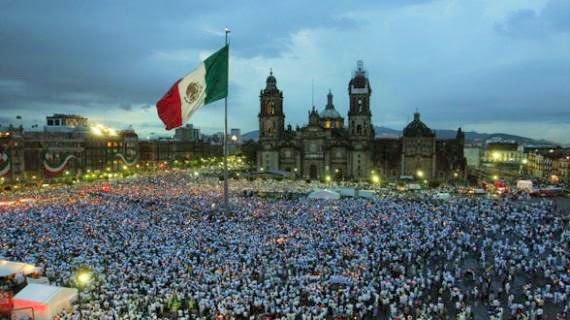A Tale of Two Courageous Youths
In October of 2012, the Taliban attempted to
assassinate Malala Yousafzai. The news appalled me. In spite of the danger, the
courageous fifteen year old Pakistani had become an outspoken advocate for the
education of young women in her homeland.
As a teacher of students Malala’s age, I joined
the ranks of her admirers and, earlier this year, I applauded upon learning that
she had been nominated for the Nobel Peace Prize. Then, in October, I celebrated
the announcement that she had been awarded the prize, becoming the youngest
Nobel Laureate ever.
I was stunned, however, when, during the
ceremony in which Malala was awarded the Nobel Prize, a young man carrying a
Mexican flag staged a protest.
Although twenty-one year old Adan Cortes
Salas never specifically mentioned his cause, the world knew that he was attempting
to hijack the occasion to express his outrage over the forty-three young men
from Ayotzinapa, Mexico, who were arrested on September 29 and never heard from
again.
The disappearance of these future
teachers—whose only crime was to plan a peaceful protest to seek better
conditions at the college they attended—has angered the citizenry of Mexico as
well as people from all over the world.
During the award ceremony, as Adan Cortes
Salas was being escorted away, he turned to the Nobel Laureate and said,
“Please, Malala, they are killing us. Don’t forget Mexico.”
Although I disapprove of the way in which the
protest upstaged what should have been the world’s celebration of the right for
young women to obtain an education, his bold stroke highlighted that there are
young people all over the world who are willing to take great risks in the name
of justice. In upstaging Malala Yousafzai’s Nobel Peace Prize award ceremony,
Adan Cortes Salas highlighted that the world has become interconnected by linking the issue of the education of women in Pakistan to the mass execution of
future teachers in Mexico.
In both instances, youth in the pursuit of
education were violently attacked.
I never would have endorsed Adan Cortes Salas’s
act if he had been one of my students. But in the grand, and sometimes grim,
scheme of things—where governments, police forces, and the movements that oppose them validate
fear, terror, violence, torture, and war in the name of maintaining order—the
peaceful protests of young people everywhere have earned their legitimacy.














0 Comments:
Post a Comment
<< Home